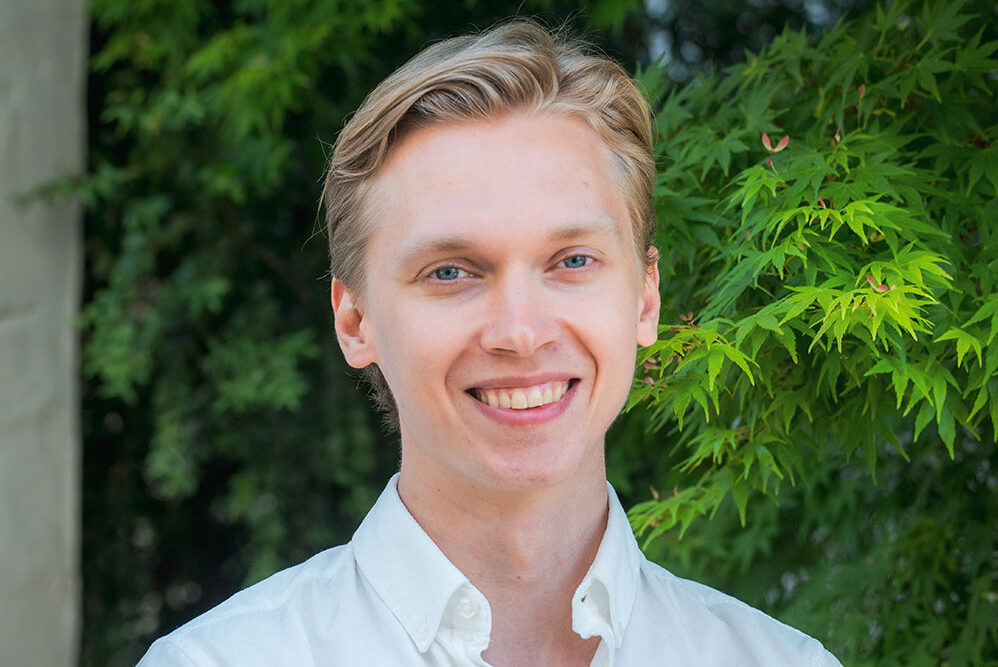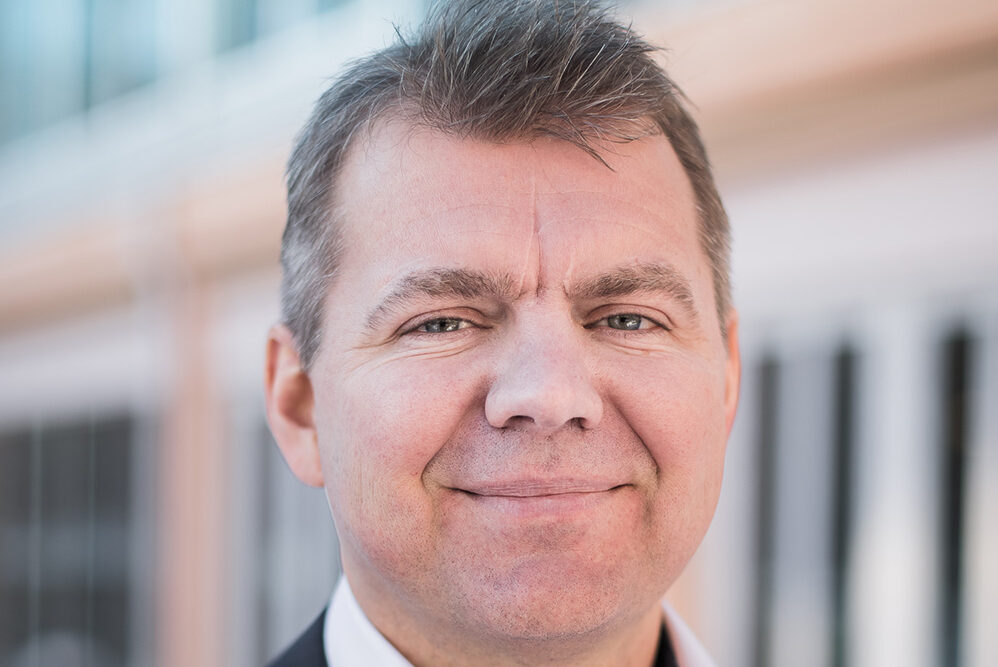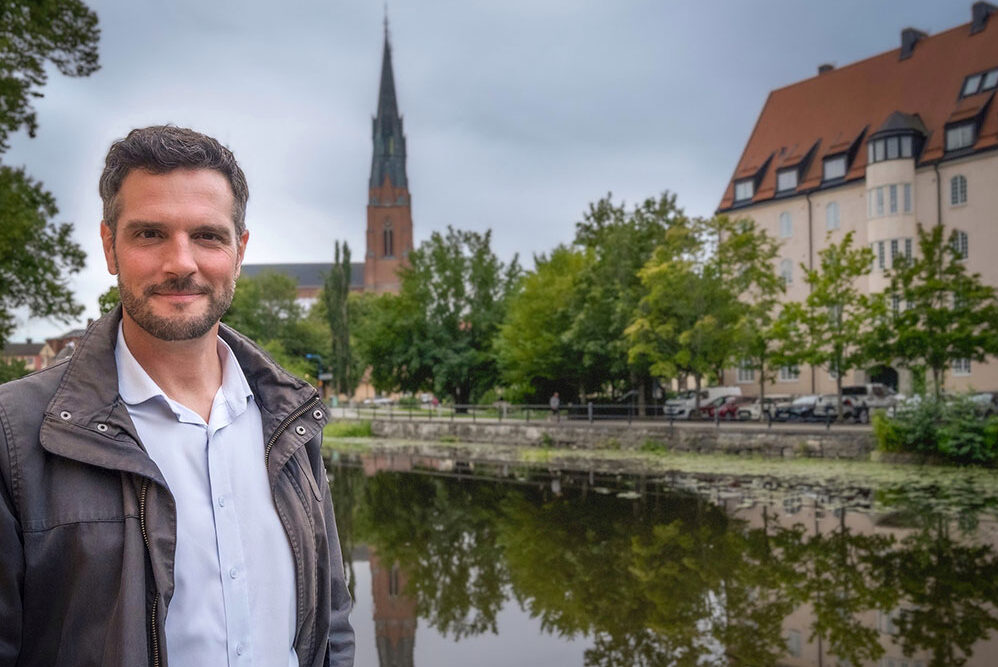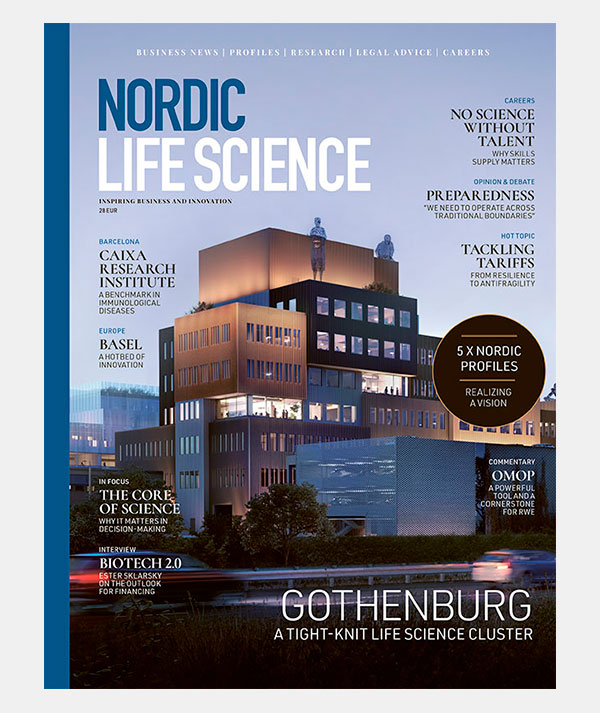Sam Sihvonen: Preventing the next pandemic

When Sam Sihvonen, co-founder and CEO of Solu, sees a problem, he wants to fix it.
With his sights set on becoming a doctor, Sam Sihvonen initially started at Helsinki Medical School in Finland in 2021 in pursuit of a medical degree. Along the way, he attended a conference on the rise of antibiotic-resistant bacteria and realized what a serious threat these posed to the world. If not stopped, these mutations could lead to the next global pandemic, and Sihvonen resolved not to let that happen.
He switched career paths from medicine to entrepreneurship and built a tool that analyzed antibiotic-resistant bacteria.
So he began analyzing genomes of bacteria and fungi and studying their DNA sequences. He switched career paths from medicine to entrepreneurship and built a tool that analyzed antibiotic-resistant bacteria. The tool rapidly identifies and isolates antibiotic-resistant genes and thus speeds up hospitals’ response time. The faster a hospital gets results, the sooner it can prevent antibiotic-resistant bacteria from spreading.
In 2023 Sihvonen and a partner launched Solu in Finland, a company described as providing “comprehensive genomic epidemiology tools for real-time pathogen surveillance and outbreak analysis.” Solu’s software provides clients with detailed information about antibiotic-resistant bacteria, describes Sihvonen.
“Our method is faster and simpler than anything else,” he says. “Other [methods] can take up to an hour, ours takes a few minutes. There is no need to understand the background, you just upload the information. And we’ve put a lot of effort into making sure there is strict data security.”
Prevent future pandemics
The company currently serves universities, hospitals, healthcare, and food safety agencies in nine countries including Norway, the United States, Canada, and New Zealand. A discounted version of the software is available to researchers and used in 70 countries. A free trial version is available to everyone.
“This is more about making a difference than making money,” emphasizes Sihvonen. “My favorite part of the job is working with smart individuals and turning our vision into a reality.”
This is clear from his long-term goals for Solu and himself. “We envision Solu having 100 million clients and I hope we can help hospitals all over the world and help prevent the next pandemic,” he says.
Scientists should focus not just on discovery, but on translation; building tools, platforms, and partnerships that put data in the hands of decision-makers in real time. Prevention isn’t just about vaccines, it’s about visibility, speed, and trust.
He is driven by a sense of urgency to head off future pandemics, a mission he believes is relevant to the whole world’s scientific community. “COVID-19 was not a one-off,” says Sihvonen.
“We’re still moving blindly in many parts of the world when it comes to early detection of emerging pathogens. We need to make genomic surveillance routine and establish a global infrastructure that can catch outbreaks before they spread. Scientists should focus not just on discovery, but on translation; building tools, platforms, and partnerships that put data in the hands of decision-makers in real time. Prevention isn’t just about vaccines, it’s about visibility, speed, and trust.”
From medicine to entrepreneurship
Although no one else in Sihvonen’s family had previously started a business, he drew inspiration from members of the entrepreneurs society at Aalto University in Espoo, Finland, where he earned his undergraduate degree in computer science. “The entrepreneur society was a great way to attract the brightest minds and build the best solutions,” he notes.
When it came to medicine, Sihvonen’s role model was found closer to home – his mother, who is a nurse, and with whom he spent time at work. Initially his family was concerned when he said he was leaving medical school to become an entrepreneur.
“Medicine is a stable, noble path, and leaving that behind to build something from scratch felt risky to them,” Sihvonen says. “But once they saw how deeply I cared about solving global problems through technology and how fast things started happening, they became supportive. My family has always believed in doing meaningful work, and eventually they saw this wasn’t a detour. It was a calling.”
In life science the bar is high.
Not least because launching a life science company isn’t exactly the easiest of business ventures. One of the reasons for that is that it takes so much time to produce something marketable, says Sihvonen. “Generally, life sciences ventures are slow to get started. It took 18 months for us to get a version out, we were trying to build something meaningful,” he says. “In life science the bar is high.”
Fortunately, Finland provides a supportive environment for start-up companies believes Sihvonen. “There is a lot of support here for the early period of establishing a company. Finland is a great place to be. We have customers all over the world, and we have access to capital. We were able to raise equity funding to reach the point where we were profitable,” he says.
Additional challenges they face now include shifting international relations and changes in investment priorities, and how these affect life sciences, says Sihvonen, especially since it isn’t clear how much the US will be investing in research. However Finland’s research funding levels have remained stable. “People want to prevent the next pandemic,” he says.
Keep a healthy work-life balance
Despite the efforts needed to create a successful product and company, Sihvonen finds time for leisure and aims to be a good family member and friend.
“I like to do endurance sports, play tennis, go trail running, and mountain biking. I also enjoy painting, reading, playing chess, and playing the guitar,” he says, but emphasizes that his number one passion is “getting more customers and helping to prevent the next pandemic.”
It’s more important to keep your sanity, go for a walk or go to the gym. Have a life.
Still, Sihvonen would say to anybody entering the life sciences field to anticipate spending long hours on the job before seeing results and getting something out to the market. But don’t give up and remember to keep a healthy work-life balance.
“If you are building a company, the first few years are going to be tough,” he concedes. “It’s a mindset question – you have to wait to get a product out, and the speed of feedback is a lot slower than in other fields. It’s more important to keep your sanity, go for a walk or go to the gym. Have a life.”
Published: November 11, 2025











